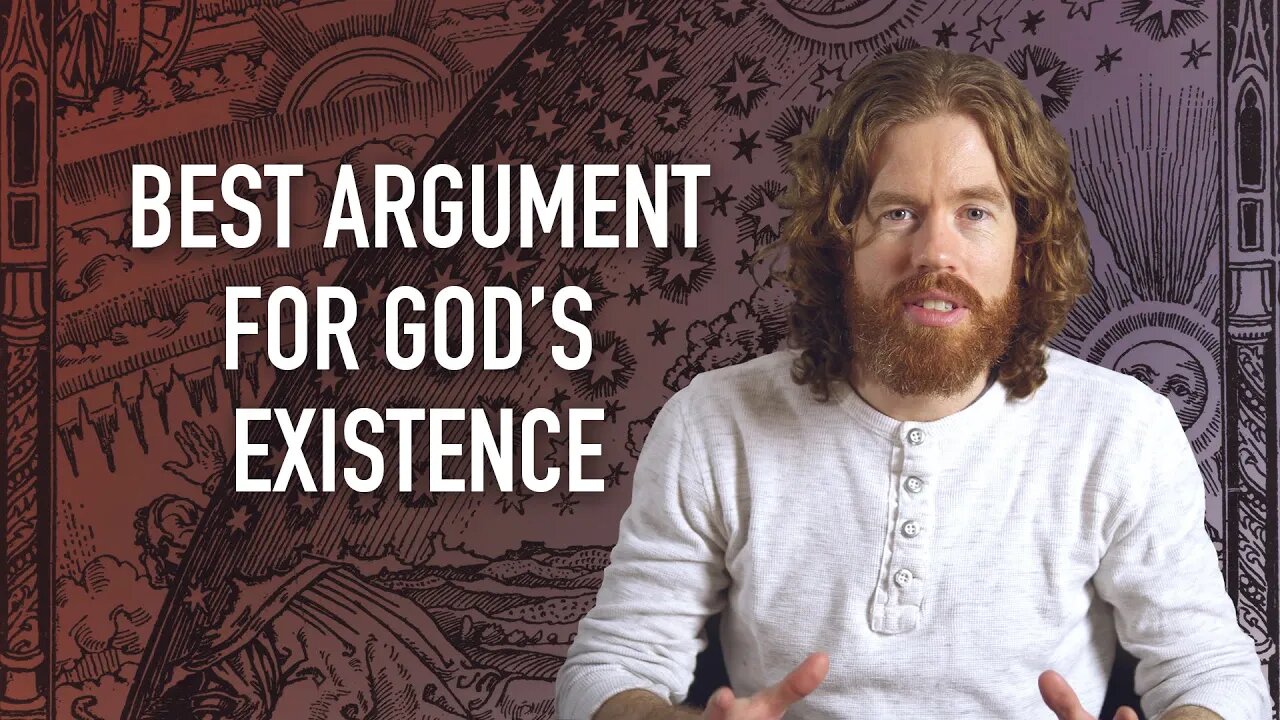Premium Only Content

The Best Argument for God's Existence
Music written and generously provided by Paul Jernberg. Find out more about his work as a composer here: http://pauljernberg.com
Spanish translations by Vélez Translations, http://www.veleztranslations.com
Every human society that we have records for, every civilization, has nurtured some moral code of behaviour. And in many cases, like the entire developed world of today, those societies have recognized the most critical elements of those moral codes with laws that inflict punitive measures on anyone who transgress those laws.
But what does that mean? What are we allowing when we talk about morality? Morality can be described as a judgement between what ought to occur and what actually occurs.
Now it’s important to notice that the natural sciences as a method of inquiry, in principle, cannot tell us anything about what ought to happen as compared to what does happen. The natural sciences are limited to consideration of the natural universe and are predicated on the assumption that the natural universe behaves according to fixed laws.
And by fixed laws, we mean what always happens. When we describe gravity, we’re talking about what always happens when two bodies of mass come within proximity of each other. There is no option to choose something outside of those laws. There are no alternative possibilities to those laws. A planet cannot choose to break faith with its orbit.
But remember morality tells us what should happen not necessarily what does happen and science only makes observations of what does happen and draws conclusions from that.
But if the natural universe is all there is, then there should be absolutely no grounds for talking about what should happen. All there is is what does happen and that you and I, as fixtures of the natural universe, must be bound to those same inevitable laws.
But in the case of you and I, we notice that there is more going on than fixed laws. We have an intellect and a will that govern the things that we do. We can choose between alternatives and because of this ability to choose and act with will, we recognize that we are responsible for the things we do.
We don’t hold other natural elements responsible for their actions in the same way. If a tsunami crashes ashore and kills hundreds of people, we don’t denounce the oceans for their transgression. We don’t protest along the shorelines demanding that the ocean recognize the value of human life. We don’t say, you should not have done that.
And the reason we don’t is because we recognize that it was behaving in an inevitable and deterministic way according to the fixed laws of the natural universe.
But when a person does something we don’t like, we don’t say, oh he was just acting according to those same fixed laws. No, we say he is responsible for those decisions because he is governed by more than the fixed laws of nature. There is some agency and ability that he draws from outside those laws that frees him from them to some degree.
But if the natural world can only be described by the fixed laws of cause and effect, and we either produce or inherit some quality that breaks free from that sequence, then we have to admit that we’ve found something that is pervasive in the human experience and which exceeds or transcends the natural universe.
In other words, there is something, that is morality, that is relentlessly available to our perception and in our experience that portrays something more to reality than what we can see, taste, and touch. There is something metaphysical or spiritual in our experience and it’s a big part of that experience.
So now that we understand that morality is something that exceeds the natural universe, what does this transcendent fact tell us about what lies outside and beyond physical nature?
It tells us that whatever lies beyond is intensely interested in our behaviour, about right and wrong, unselfishness, and justice. It seems to be instructing us in becoming moral by affirming us in good behaviour and making us uncomfortable and ashamed about our bad behaviour.
The only thing we can compare this to is a mind with will, purpose, and intention. We cannot talk about matter as if it were teaching or guiding us. And we cannot talk about it as if it were a natural law because as we’ve seen, natural laws don’t make allowances to disobey.
And the fact that we can disobey and are not forced to conform ourselves to these moral instructions tells us a little more, I believe. It makes love or the free gift of self, possible. What good are marriage vows if the one reciting them has no choice? What good is a promise if it can’t be broken?
Love acquires its significance because it does not have to be given. So, the fact that the power behind the moral law doesn’t force this law upon us, makes love possible. And it is this aggregate of variables that leads us to a very personal perception of that which lies beyond the natural universe.
-
 12:28
12:28
Brian Holdsworth
1 year ago $0.05 earnedThe Popes Warned Us About This
2951 -
 LIVE
LIVE
Spartan
3 hours agoPro Halo Player | Halo Infinite Ranked Arena into SWTOR and/or Gears Beta
69 watching -
 LIVE
LIVE
This is the Ray Gaming
2 hours ago $0.15 earnedPushing for Rumble Creator Program
184 watching -
 LIVE
LIVE
Damysus Gaming
1 hour agoDune: Awakening - Grinding for that Ornithopter - Guild Work! Drown in Some Spice!
72 watching -
 DVR
DVR
EricJohnPizzaArtist
4 days agoAwesome Sauce PIZZA ART LIVE Ep. #51: Music Night featuring Sophmore John!
14.8K2 -
 5:46:03
5:46:03
sophiesnazz
6 hours ago $3.20 earnedWE VIBING! !socials
44.1K3 -
 LIVE
LIVE
FoeDubb
10 hours ago🏰KINGDOM MENU: 👑HAPPY FATHERS DAY TO MY FELLOW RUMBLE DADS.👑THIS IS OUR DAY DILLY DILLY
43 watching -
 2:57:07
2:57:07
Illyes Jr Gaming
3 hours agoIt's Sunday! It's GAMEDAY!!! LET'S GO!
10.8K -
 23:14
23:14
DeVory Darkins
1 day agoDemocrats STUNNED by Political Attack as No Kings Portest Erupt
63.5K566 -
 20:48
20:48
Stephen Gardner
1 day ago🚨You WON'T BELIEVE what just happened to Trump & George Soros!
121K720